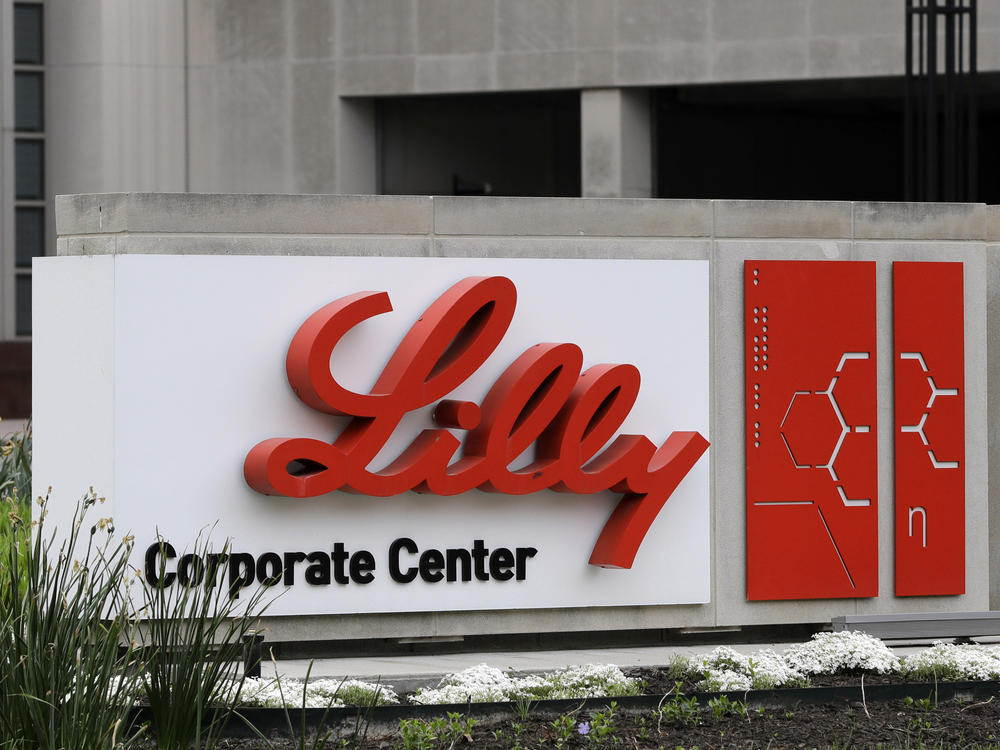Section Branding
Header Content
FDA approves Zepbound, a new obesity drug that will take on Wegovy
Primary Content
An obesity drug called Zepbound won approval for use in adults from the Food and Drug Administration Wednesday, ushering in a new rival to Novo Nordisk's blockbuster Wegovy.
Eli Lilly & Co., maker of Zepbound, says it shows greater weight loss at a lower list price than Wegovy. The Lilly drug will be available in the U.S. by the end of the year. A version of the shot, known generically as tirezepatide, is already sold as Mounjaro to treat Type 2 diabetes.
The Lilly drug works by acting on two hormone receptors in the brain, including one called GLP-1, short for glucagon-like peptide-1 – that regulate appetite and metabolism.
The new class of medicines for managing obesity that includes Zepbound and Wegovy has given people with obesity and overweight a potent option for treatment. But the drugs are expensive, and many people who lose weight regain it after stopping the medicines.
Dramatic loss in weight
In clinical trials, the average weight loss for people taking Zepbound was about 20%. One in three users of the medication at its highest dose, saw weight loss of about a quarter of their body weight. The results are roughly equivalent to those of bariatric surgery.
Common side effects from the drug include nausea, diarrhea, constipation and vomiting. The drug also caused thyroid tumors in rats, though the FDA said it's not known if Zepbound causes the same kind of tumors in humans.
In announcing the approval, the FDA cited the growing public health concern over excess weight. "In light of increasing rates of both obesity and overweight in the United States, today's approval addresses an unmet medical need," said Dr. John Sharretts, director of the Division of Diabetes, Lipid Disorders, and Obesity in the FDA's Center for Drug Evaluation and Research. About 70% of adult Americans have obesity or overweight, the FDA noted.
"New treatment options bring hope to the many people with obesity who struggle with this disease," said Joe Nadglowski, president and CEO of the Obesity Action Coalition, in a statement released by Lilly. He noted numerous life-threatening diseases — from heart attacks and strokes to diabetes — that are linked to obesity.
Cost and insurance coverage
New medications to treat obesity and related conditions have become wildly popular, but are expensive, especially when paid for out of pocket.
Zepbound will carry a list price of $1,060, which would make it about 20% less than the list price for Wegovy, Lilly said.
The actual amount patients would pay would depend on their insurance coverage and potential discounts. Insurance coverage for Wegovy, for example, varies widely by provider.
Lilly said people with commercial health insurance that covers Zepbound "may be eligible to pay as low as $25" for one-month or three-month prescriptions.
Lilly will offer a discount card to help defray the expense for people who have commercial health insurance that doesn't include coverage for the drug. The cost could be reduced to $550 for a one-month prescription of Zepbound, or about half the list price, Lilly said.
Medicare doesn't pay for weight-loss drugs. However, Congress is considering measures that would expand insurance access to cover treatments for obesity, including some of the new medications, for Medicare enrollees.
"Far too many hurdles continue to prevent people living with obesity from accessing obesity treatments that could lead to significant weight loss," said Mike Mason, executive vice president and president of Lilly's Diabetes and Obesity division in a statement, calling for the government and insurance industry to cover Zepbound.
Copyright 2023 NPR. To see more, visit https://www.npr.org.

